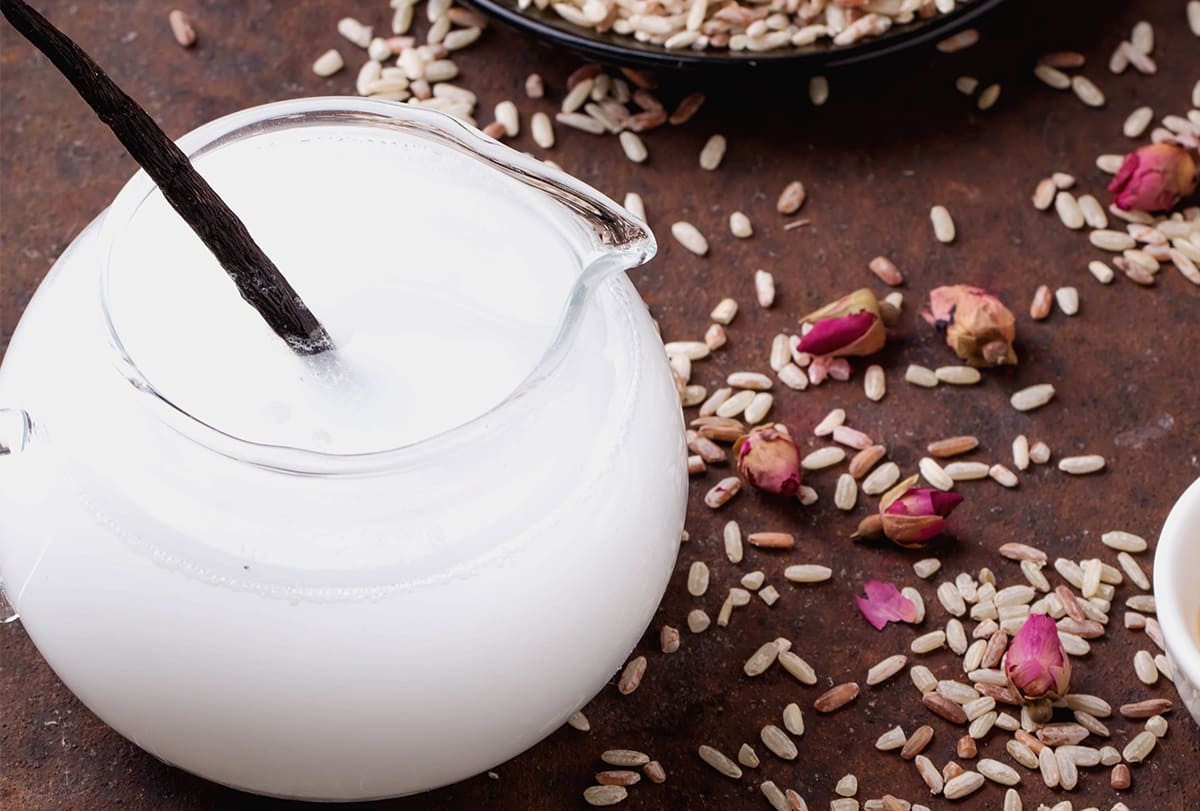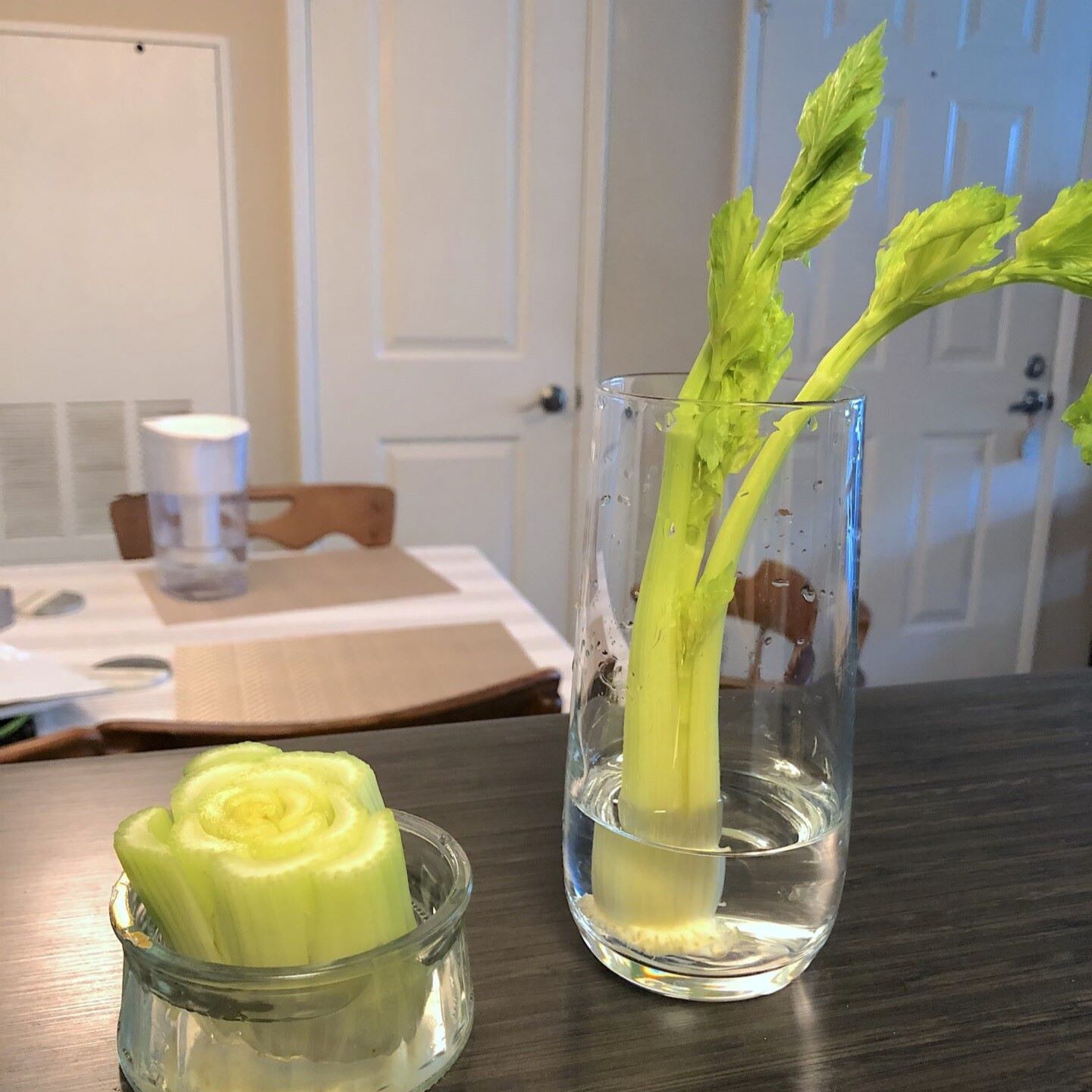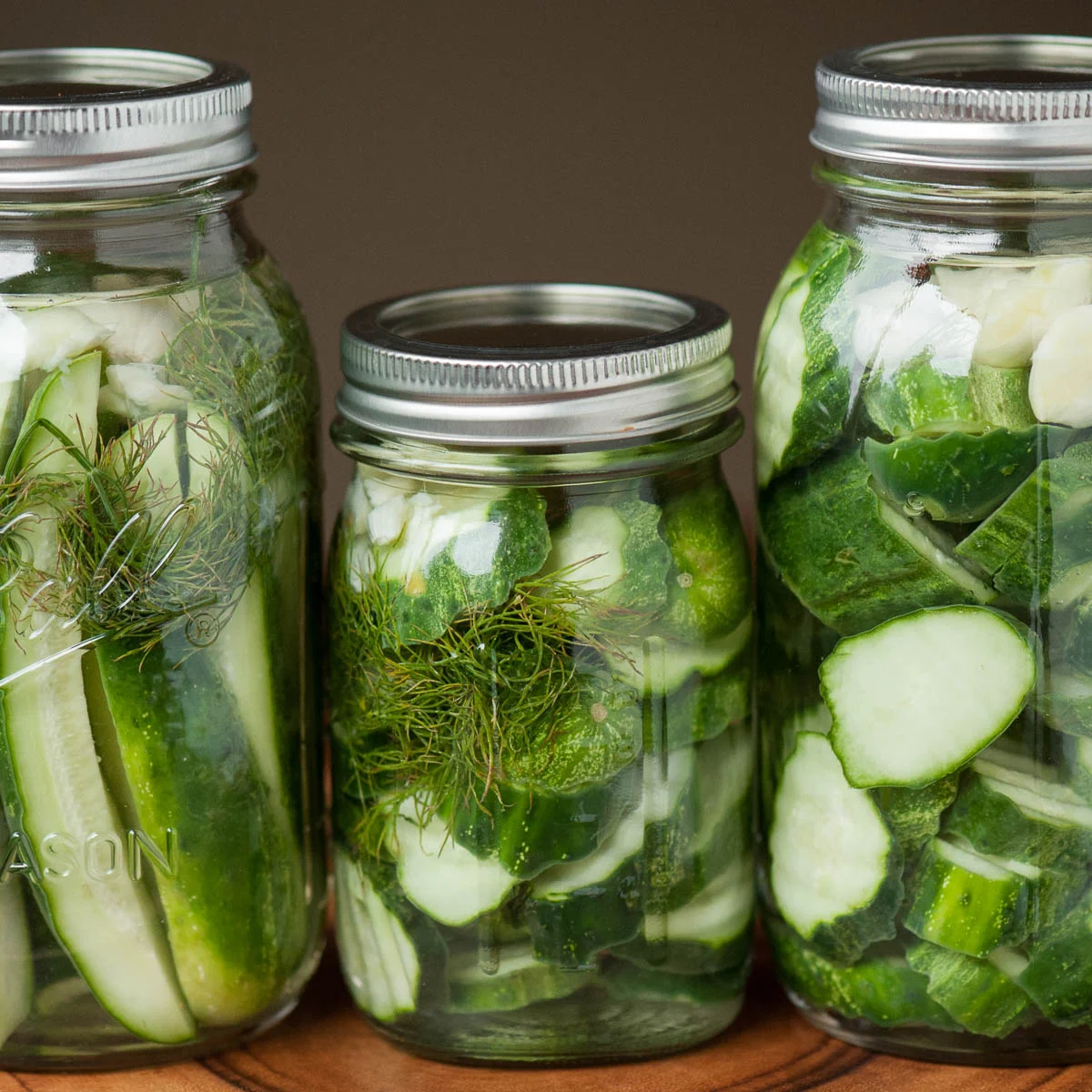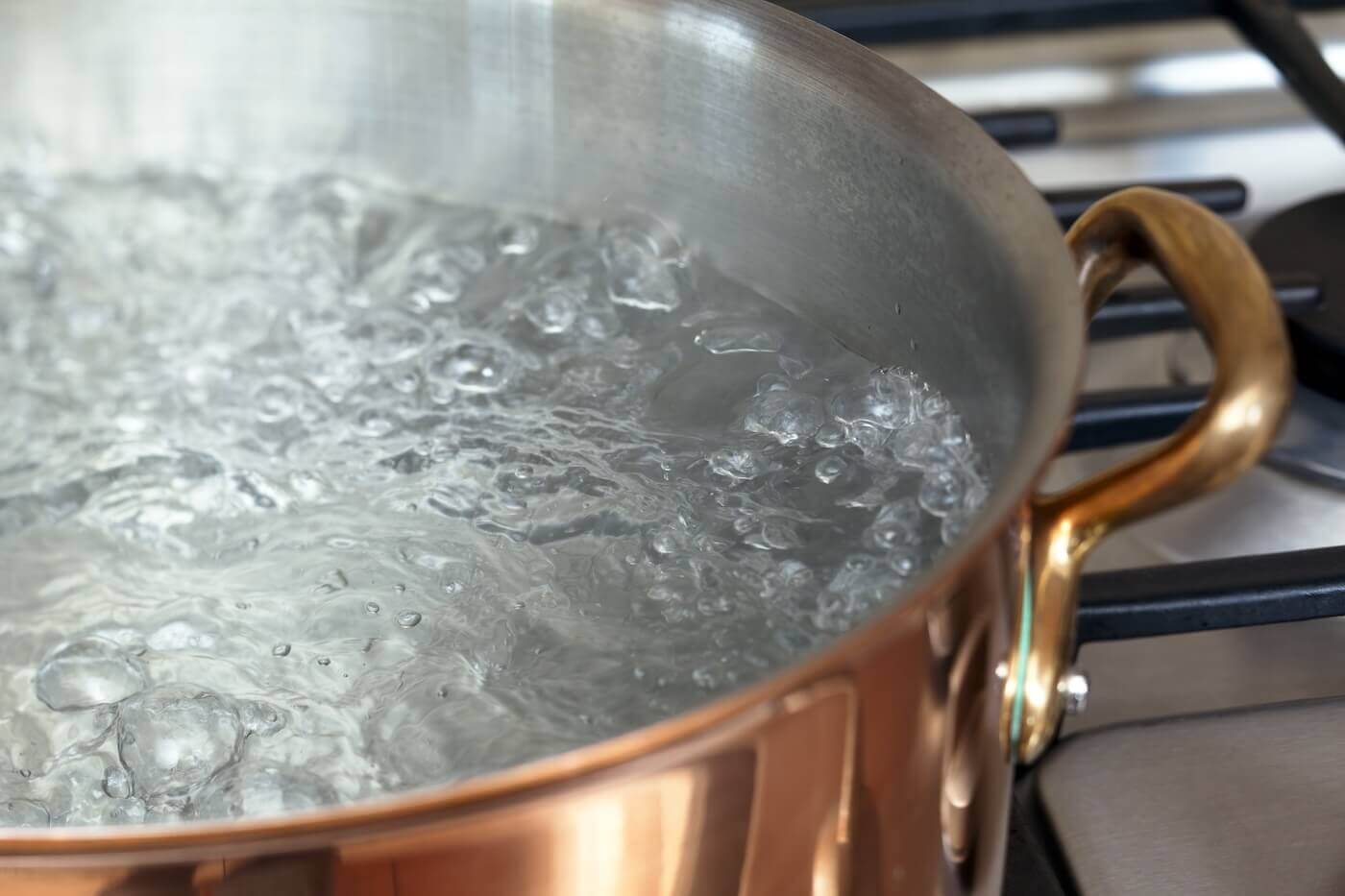

Articles
How To Store Rice Water
Modified: October 20, 2024
Learn how to store rice water to retain its nutrients and maximize its benefits. Discover the best methods and tips in this informative articles.
(Many of the links in this article redirect to a specific reviewed product. Your purchase of these products through affiliate links helps to generate commission for Storables.com, at no extra cost. Learn more)
Introduction
When it comes to natural beauty remedies, rice water is one power ingredient that has gained popularity for its numerous benefits. Originating from ancient Chinese and Japanese beauty rituals, rice water has been used for centuries as a secret weapon for beautiful hair and skin. The practice of using rice water has now spread around the world, and for good reason – it’s affordable, easily accessible, and highly effective.
In its simplest form, rice water is the liquid that remains after rice is soaked or cooked. It is rich in vitamins, minerals, and antioxidants that provide nourishment and hydration to both the hair and skin. This natural elixir offers a wide range of benefits, including promoting hair growth, improving hair texture, hydrating the skin, reducing acne, and even soothing sunburns.
Preparing rice water is a simple and straightforward process that can be done at home. It requires minimal ingredients and can be customized to suit individual needs. Whether you have dry, damaged hair or want to give your skin a healthy glow, rice water can be a game-changer in your beauty routine.
However, once you have prepared rice water, you may find yourself wondering how to store it properly to ensure its longevity and effectiveness. In this article, we will explore different methods of storing rice water, along with some useful tips for utilizing stored rice water.
So, if you’re ready to unlock the full potential of rice water and reap its benefits for your hair and skin, let’s dive into the world of storing rice water.
Key Takeaways:
- Rice water offers a multitude of benefits for hair and skin, including promoting hair growth, improving texture, hydrating the skin, reducing acne, and soothing sunburns. It’s a natural, cost-effective solution that can be easily prepared at home.
- Storing rice water is crucial for maintaining its efficacy. Refrigeration, freezing, fermentation, herbal infusion, and other methods provide flexibility for long-term storage. Diluting, patch testing, and customizing usage can maximize its nourishing effects.
Read more: How To Store Water In Barrels
Benefits of Rice Water for Hair and Skin
Rice water is packed with essential nutrients that can work wonders for both your hair and skin. Here are some of the key benefits:
1. Promotes Hair Growth
Rice water contains amino acids, vitamins, and minerals that nourish the scalp and strengthen the hair follicles, promoting healthy hair growth. It also helps to improve the overall condition of your hair, making it less prone to breakage.
2. Improves Hair Texture
If you’re struggling with frizzy or dull hair, rice water can be a game-changer. The proteins present in rice water help to smooth the hair cuticles, resulting in softer, shinier, and more manageable hair.
3. Hydrates the Skin
Rice water is an excellent natural moisturizer for the skin. It helps to lock in moisture and keep the skin hydrated, making it ideal for those with dry or dehydrated skin. Regular use of rice water can leave your skin feeling soft, supple, and revitalized.
Read more: How Much Rice To Water In Aroma Rice Cooker
4. Reduces Acne
Rice water has anti-inflammatory properties that can help soothe irritated or acne-prone skin. It also helps to regulate sebum production, reducing the occurrence of breakouts and minimizing the appearance of acne scars.
5. Soothes Sunburns
The soothing properties of rice water can provide relief to sunburned skin. It helps to reduce inflammation and redness, promoting healing and soothing the discomfort associated with sunburns.
6. Fights Aging Signs
The antioxidants present in rice water help to combat free radicals, which can contribute to premature aging. Regular use of rice water can help reduce the appearance of fine lines, wrinkles, and age spots, giving your skin a more youthful and radiant look.
These are just a few of the many benefits that rice water can offer for your hair and skin. By incorporating rice water into your beauty routine, you can unleash its full potential and achieve beautiful, healthy hair and glowing, vibrant skin.
Preparing Rice Water
Preparing rice water is a simple process that can be done with just a few ingredients and a little bit of time. Here is a step-by-step guide to help you prepare rice water at home:
Read more: How To Store Carrots In Water
1. Choose the Right Rice
Start by selecting the type of rice you want to use. While any type of rice can be used to make rice water, it is best to opt for unpolished rice, such as brown or wild rice. These varieties retain more nutrients and are more beneficial for your hair and skin.
2. Rinse the Rice
Measure out the desired amount of rice (usually ½ to 1 cup) and rinse it thoroughly to remove any impurities or excess starch. This step is important to ensure that the rice water is clean and free from any debris.
3. Soak the Rice
Place the rinsed rice in a bowl and add enough water to cover it completely. Let the rice soak for at least 30 minutes. You can also leave it to soak overnight for a more potent rice water solution.
4. Agitate the Rice
Using your hands or a spoon, gently agitate the rice in the water. This will help to release the nutrients from the rice into the water. You will notice the water turning cloudy or milky as the rice releases its contents.
Read more: How To Store Kale In Water
5. Strain the Rice Water
After agitating the rice, strain the rice water into a clean container. You can use a fine-mesh strainer or cheesecloth to remove any remaining rice particles and obtain a smooth rice water solution.
6. Use or Store the Rice Water
At this point, your rice water is ready to be used or stored for future use. If you’re planning to use it immediately, you can apply it directly to your hair or skin. If you want to store it, read on for different methods of storing rice water.
Preparing rice water is a straightforward process that requires minimal effort. By following these steps, you can make your own rice water and harness its beneficial properties for your hair and skin.
Storing Rice Water
Once you have prepared rice water, it is important to store it properly to ensure its longevity and effectiveness. Here are a few methods you can use to store rice water:
1. Refrigeration
The simplest and most common method of storing rice water is by refrigeration. After preparing rice water, transfer it to a clean, airtight container and place it in the refrigerator. This will help to extend its shelf life and prevent spoilage. Rice water stored in the refrigerator can typically last for up to one week.
Read more: How To Store Water At Home
2. Freezing
If you want to store rice water for a longer period, freezing is an excellent option. Pour the rice water into ice cube trays and place them in the freezer. Once frozen, transfer the rice water cubes to a sealed freezer bag or container. Frozen rice water can last for several months, making it convenient for future use.
3. Fermentation
Another method of storing rice water is through fermentation. Fermented rice water offers additional benefits as it increases the nutrient content and pH balance. To ferment rice water, leave it at room temperature for 24 to 48 hours before transferring it to the refrigerator or freezer for storage. However, be cautious of over-fermentation, as it can lead to an unpleasant odor.
4. Herbal Infusion
If you want to enhance the benefits of rice water, you can infuse it with herbs or essential oils. After preparing rice water, add a few drops of your preferred essential oil, such as lavender or rosemary oil, or steep some herbs like rose petals or chamomile in the rice water for added fragrance and therapeutic properties. Store the infused rice water in the refrigerator or freezer as per the respective storage methods mentioned above.
Remember to label your stored rice water containers with the date to keep track of their freshness. Additionally, always check for any signs of spoilage, such as a foul smell or mold, before using the stored rice water.
By using these storage methods, you can ensure that your rice water remains fresh and effective for longer periods, allowing you to enjoy its benefits whenever you desire.
Different Methods of Storing Rice Water
When it comes to storing rice water, there are various methods you can choose from, depending on your preferences and needs. Here are some different ways to store rice water:
1. Refrigeration
Refrigeration is one of the most common and convenient methods for storing rice water. After preparing rice water, transfer it to a clean, airtight container and place it in the refrigerator. Make sure to use a container that is specifically meant for food storage to maintain its freshness. Refrigerated rice water can typically last for up to one week, allowing you to use it whenever you need it.
Read more: How To Store Water At Home
2. Freezing
Freezing rice water is an excellent method for long-term storage. Pour the rice water into ice cube trays and place them in the freezer until they are completely frozen. Once frozen, transfer the rice water cubes to a sealed freezer bag or container. Frozen rice water can last for several months, ensuring that you always have rice water on hand whenever you want to use it.
3. Fermentation
Fermentation is a unique method of storing rice water that offers additional benefits. It involves leaving the rice water at room temperature for a period of time to allow fermentation to take place. During fermentation, beneficial bacteria and yeast interact with the rice water, increasing its nutrient content and improving its pH balance. After fermentation, store the rice water in the refrigerator or freezer to halt the fermentation process and maintain its freshness. Note that over-fermentation can lead to an unpleasant odor, so it’s important to monitor the process carefully.
4. Bottling
If you prefer a more traditional approach, you can store rice water in glass bottles. After preparing the rice water, carefully pour it into clean glass bottles, ensuring they are properly sealed. Glass bottles provide an airtight storage environment and help to preserve the freshness of the rice water. Store the bottles in a cool, dark place to maintain their quality. However, make sure to monitor the stored rice water regularly for any signs of spoilage.
Read more: How To Store Water Hose
5. Vacuum Sealing
Vacuum sealing is an effective method of storing rice water as it removes excess air from the container, preventing oxidation and spoilage. Use a vacuum sealer to seal the rice water in airtight bags or containers, ensuring that there is no air left inside. Vacuum-sealed rice water can be stored in the refrigerator or freezer for an extended period, preserving its freshness and potency.
These different methods of storing rice water provide you with flexibility and options to suit your storage preferences. Whether you choose refrigeration, freezing, fermentation, bottling, or vacuum sealing, you can ensure that your rice water retains its efficacy and nutrients for future use.
Tips for Using Stored Rice Water
Once you have stored rice water, you can maximize its benefits by following these helpful tips:
1. Dilute as Needed
Rice water can be quite potent, so it’s important to dilute it with water before use. You can mix equal parts rice water and water to create a more manageable solution. This dilution will make it easier to apply and prevent any potential buildup on your hair or skin.
2. Perform a Patch Test
Before applying rice water to your entire scalp or skin, it’s recommended to perform a patch test. Apply a small amount of rice water to a small area and observe for any adverse reactions or allergies. This will help ensure that you don’t have any sensitivities to rice water before using it extensively.
Read more: How To Store Chives In Water
3. Apply with Care
When using rice water on your hair or skin, it’s important to apply it gently and evenly. Use your fingertips or a cotton pad to apply the rice water, massaging it into your scalp or skin. Avoid applying excessive pressure or rubbing vigorously, as it can cause unnecessary irritation.
4. Customize with Additives
If desired, you can customize your rice water by adding additional ingredients for added benefits. For example, you can mix in a few drops of essential oils, such as lavender or rosemary, to enhance the aroma and boost the therapeutic properties. You can also infuse herbs like rose petals or chamomile for extra nourishment and relaxation.
5. Use as a Rinse or Mist
Rice water can be used as a hair rinse or a facial mist. After shampooing your hair, pour diluted rice water over your hair as a final rinse, allowing it to sit for a few minutes before rinsing it off. As a facial mist, transfer the rice water to a spray bottle and mist it onto your face throughout the day for a refreshing hydration boost.
6. Monitor Shelf Life
Keep track of the shelf life of your stored rice water. Check for any signs of spoilage, such as a foul smell, mold, or change in color. If you notice any irregularities, it’s best to discard the rice water to avoid any potential harm.
Read more: How To Store Bacteriostatic Water
7. Experiment and Adjust
Every individual’s hair and skin react differently to rice water. Therefore, it’s important to experiment and adjust the frequency and duration of use based on your unique needs. Start with using rice water once a week and observe how your hair or skin responds. You can then increase or decrease the frequency as necessary.
By following these tips, you can make the most out of your stored rice water and enjoy its nourishing benefits for your hair and skin.
Conclusion
Rice water is a natural beauty elixir that has been used for centuries to enhance the health and appearance of hair and skin. With its abundance of nutrients and antioxidants, rice water offers numerous benefits, including promoting hair growth, improving hair texture, hydrating the skin, reducing acne, and soothing sunburns. It is a cost-effective and easily accessible solution that can be prepared at home with minimal ingredients.
Once you have prepared rice water, it’s essential to store it properly to maintain its efficacy. Refrigeration and freezing are the most common methods of storing rice water, allowing it to last for a significant period. Fermentation and herbal infusion are alternative methods that offer additional benefits and customization options.
When using stored rice water, remember to dilute it with water, perform a patch test, and apply it gently and evenly to your hair or skin. Customizing it with additives such as essential oils or herbs can enhance its benefits and provide a personalized experience. Monitor the shelf life of stored rice water and adjust the frequency of use based on your individual needs.
In conclusion, incorporating rice water into your beauty routine can transform the health and appearance of your hair and skin. From promoting hair growth and texture to hydrating the skin and reducing acne, rice water offers a range of benefits that can be maximized with proper storage and usage. Unlock the potential of rice water and experience its natural wonders for yourself.
Frequently Asked Questions about How To Store Rice Water
Was this page helpful?
At Storables.com, we guarantee accurate and reliable information. Our content, validated by Expert Board Contributors, is crafted following stringent Editorial Policies. We're committed to providing you with well-researched, expert-backed insights for all your informational needs.








0 thoughts on “How To Store Rice Water”